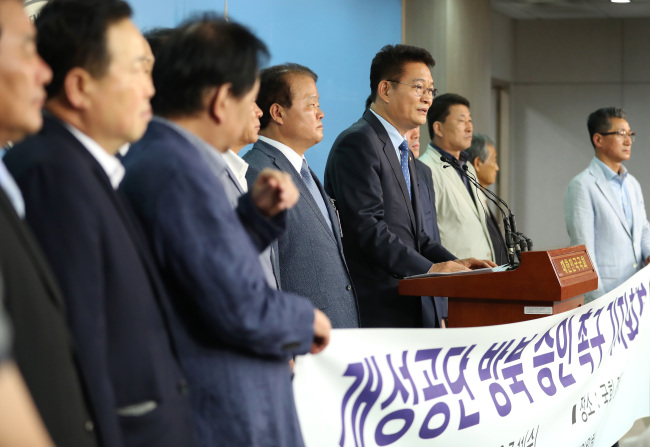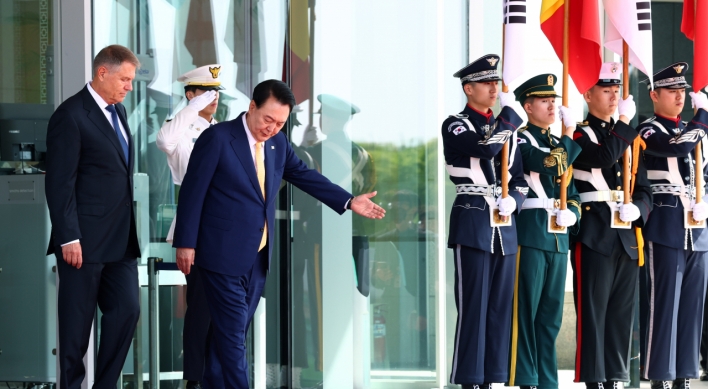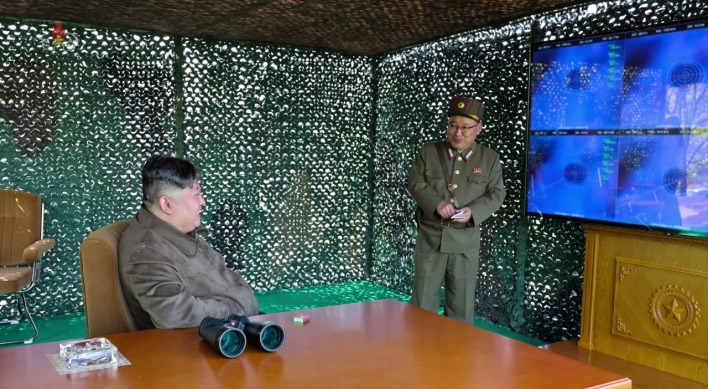Economic exchange to lay foundation for constitutional law of reunified Korea
By Jung Min-kyungPublished : Aug. 2, 2018 - 17:40
With a recent detente between South and North Korea fueling hopes for reunification, the South’s legal community believes that drawing up a strong legal framework for inter-Korean economic projects will lay the groundwork for the constitutional law of a reunified peninsula.
Studies seeking a legal system that could support peaceful reunification are being done in the South, in the hopes of designing a legal framework that could bridge the political and economic gaps between the two Koreas.
Studies seeking a legal system that could support peaceful reunification are being done in the South, in the hopes of designing a legal framework that could bridge the political and economic gaps between the two Koreas.

Kwon Soon-yub, an attorney specializing in North Korean and inter-Korean economic cooperation law at law firm Lee & Ko, told The Korea Herald that designing a set of laws for inter-Korean economic projects would help the South brace for legal challenges and changes that may come with reunification. The projects also have the potential to contribute to closing the massive economic gap between the two Koreas, he said.
“North Korea’s economy is in a more dire state than that of East Germany in 1990 because even when the income per capita ratio was about 3:1 in Germany back then, the country struggled to revive its economy for nearly 20 years following its reunification,” Kwon said.
According to a 2018 Bank of Korea report, the North’s gross national income in 2017 came in at 36.6 trillion won ($32.2 billion), which was 2.1 percent that of South Korea. Its per-capita GNI stood at 1.46 million won, 23 times less than the South’s, an indication of a longer and more grueling unification process for Korea compared to Germany.
“Drawing up a stronger legal framework for inter-Korean economic projects such as the Kaesong industrial park would be a landmark step toward designing the constitutional law of the reunified Korea,” he added.
But skeptics say there is a long road ahead for the development of laws designed for inter-Korean economic projects.
“The law governing inter-Korean economic exchange is almost nonexistent as observed from the precedent of South Korea’s decision to abruptly pull its businessmen out of the Kaesong industrial park in 2016 without adopting proper legal procedures,” said Lee Soo-hyun, a partner at law firm Sejong.
The now-shuttered joint economic zone in the North Korean border town of Kaesong is a vestige of the 1998-2003 Kim Dae-jung administration’s Sunshine Policy, which sought to aid North Korea’s recovery from severe economic decline by combining the South’s capital with the North’s cheap labor.
However, criticism over a lack of legal grounds and protection for the South’s businessmen at the industrial park has existed from the beginning. Many businesses filed for bankruptcy after they were forced to leave behind a significant portion of their private properties, including factories, in 2016. The joint complex was closed over the North’s relentless military provocations and pursuit of its nuclear program.
The South Korean companies have yet to be authorized to revisit the complex despite persistent rumors that the North has been operating the factories without their consent.
A cross-border tour program to Kumgangsan on the North’s east coast was also suspended in July 2008 after a female South Korean tourist was shot dead by a North Korean guard near the resort. Job losses had resulted from the incident as well.
Noting the criticism surrounding the lack of legal protection for businesses involved in inter-Korean economic projects, the South’s Ministry of Unification, which oversees inter-Korean affairs, announced last month its plans to boost protection of local businesses involved in cross-border projects by revising the law.
The revised law would require the government’s bans or restrictions on economic projects with North Korea to be subject to a Cabinet review. It would also help normalize operations of companies if they suffer damages from the government’s unilateral decisions. The amendment proposal will be open for public review from Monday until late August before going into effect, the ministry said.
“But the problem is that nothing can truly change with all the layers of economic sanctions against North Korea,” Lee said.
Analysts and legal experts also realize the need for fresh theories, as the situation on the Korean Peninsula has begun to significantly differ from the German reunification of 1990, on which several key studies are based.
“It’s risky to continue developing legal theories based on the German reunification because West Germany absorbed East Germany in its reunification process, and such a method may no longer be the answer when applied to the Korean Peninsula,” said Kwon.
Experts have suggested the South’s absorption of the North following the collapse of Pyongyang’s current regime as an ideal unification model, but North Korean leader Kim Jong-un’s apparent desire to secure regime security through denuclearization talks with the US is creating significant obstacles.
Meanwhile, the South’s legal community is keeping its eyes and ears open for any changes that the current mood of peace may bring to the legal system of the peninsula.
“We launched a separate team specializing in inter-Korean economic cooperation and North Korea nearly a decade ago, once the North had begun to show noteworthy progress in its nuclear program -- we knew it was going to bring some kind of change,” Kwon said.
By Jung Min-kyung (mkjung@heraldcorp.com)


![[AtoZ into Korean mind] Humor in Korea: Navigating the line between what's funny and not](http://res.heraldm.com/phpwas/restmb_idxmake.php?idx=644&simg=/content/image/2024/04/22/20240422050642_0.jpg&u=)



![[Herald Interview] Why Toss invited hackers to penetrate its system](http://res.heraldm.com/phpwas/restmb_idxmake.php?idx=644&simg=/content/image/2024/04/22/20240422050569_0.jpg&u=20240422150649)

![[Graphic News] 77% of young Koreans still financially dependent](http://res.heraldm.com/phpwas/restmb_idxmake.php?idx=644&simg=/content/image/2024/04/22/20240422050762_0.gif&u=)






![[Exclusive] Korean military to ban iPhones over security issues](http://res.heraldm.com/phpwas/restmb_idxmake.php?idx=652&simg=/content/image/2024/04/23/20240423050599_0.jpg&u=)



